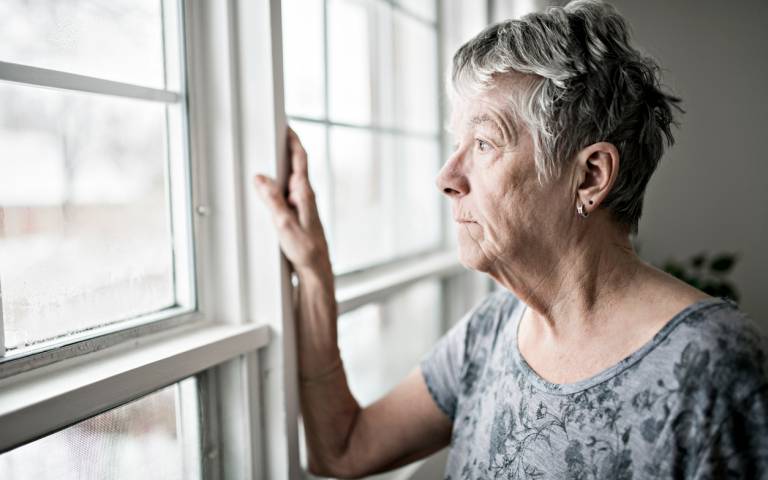Covid infection doubles risk of mental health and financial problems in older adults
18 July 2022
Adults over the age of 52 appear to be twice as likely to develop mental health problems such as depression and anxiety, alongside suffering from financial difficulties after contracting Covid-19, finds a new UCL-led study.

The study, published in PNAS, used data from 5,146 adults between the ages of 52 and 74 who participated in the English Longitudinal Study of Ageing, to examine the immediate and longer-term impact of Covid-19 infection on the mental health, wellbeing, social interactions, and financial outcomes of older adults.
Participants provided data before the pandemic (2018-19) and at two Covid-19 assessments in 2020 (June-July and November-December).
After taking into account sociodemographic characteristics, health-related factors, and pre-pandemic data, the results showed that 49% of older adults with a probable* Covid-19 infection had clinically significant depressive symptoms, compared with 22% of those without infection, between June and July 2020.
Meanwhile, 12% of people with probable infection were identified as having anxiety, compared with 6% of those without infection.
These adverse effects lasted for up to six months after the presumed start of infection and appeared to worsen, as a follow-up assessment between November and December 2020 estimated that the prevalence of depression and anxiety among older people with probable infection was 72% and 13% respectively, compared with 33% and 7% in those without infection. Such increase in the prevalence of mental health problems during the first year of the pandemic might be due to further months of Covid-19 control measures and restrictions to personal freedom.
In addition, an estimated 40% of older people with probable Covid-19 infection experienced more financial difficulties in June and July 2020 than before the pandemic, compared with 20% of those without infection. Feelings of loneliness were also twice as high in older people with probable infection than in those without.
However, monetary worries eased by November 2020 and no significant differences were found between those who had a probable Covid-19 infection and those who didn’t.
Lead author, Dr Ellie Iob (UCL Institute of Epidemiology & Health) said: “There is currently little evidence on the impact that contracting Covid-19 infection may have on an individual’s mental health, personal finances, and social relationships.
“However, our study shows that older adults with probable Covid-19 infection experienced higher levels of depression and anxiety, poorer quality of life, elevated feelings of loneliness, and greater financial difficulties compared with those without probable infection. This was evident both in the acute phase of the infection and up to six months later.
“These results suggest that the adverse psychosocial impact of Covid-19 infection is long-lasting and more broadly present across the population.
“We encourage anyone who may be experiencing issues with their mental health or wellbeing to speak to their GP.”
Study limitations
The classification of probable Covid-19 infection was based on self-reported symptoms and not confirmed by a laboratory test, so not all participants classified as suspected Covid-19 cases might have actually contracted the infection.
Symptoms of Covid-19 were also only ascertained at the first Covid-19 assessment in June-July 2020, and therefore researchers could not determine the duration of symptoms and identify people with long Covid-19.
Links
- Original research in PNAS
- Dr Ellie Iob's academic profile
- UCL Institute of Epidemiology & Health
- UCL Population Health Sciences
Image
- Credit: LSOphoto Source: iStock
Media contact
Poppy Danby
E: p.danby [at] ucl.ac.uk
 Close
Close

